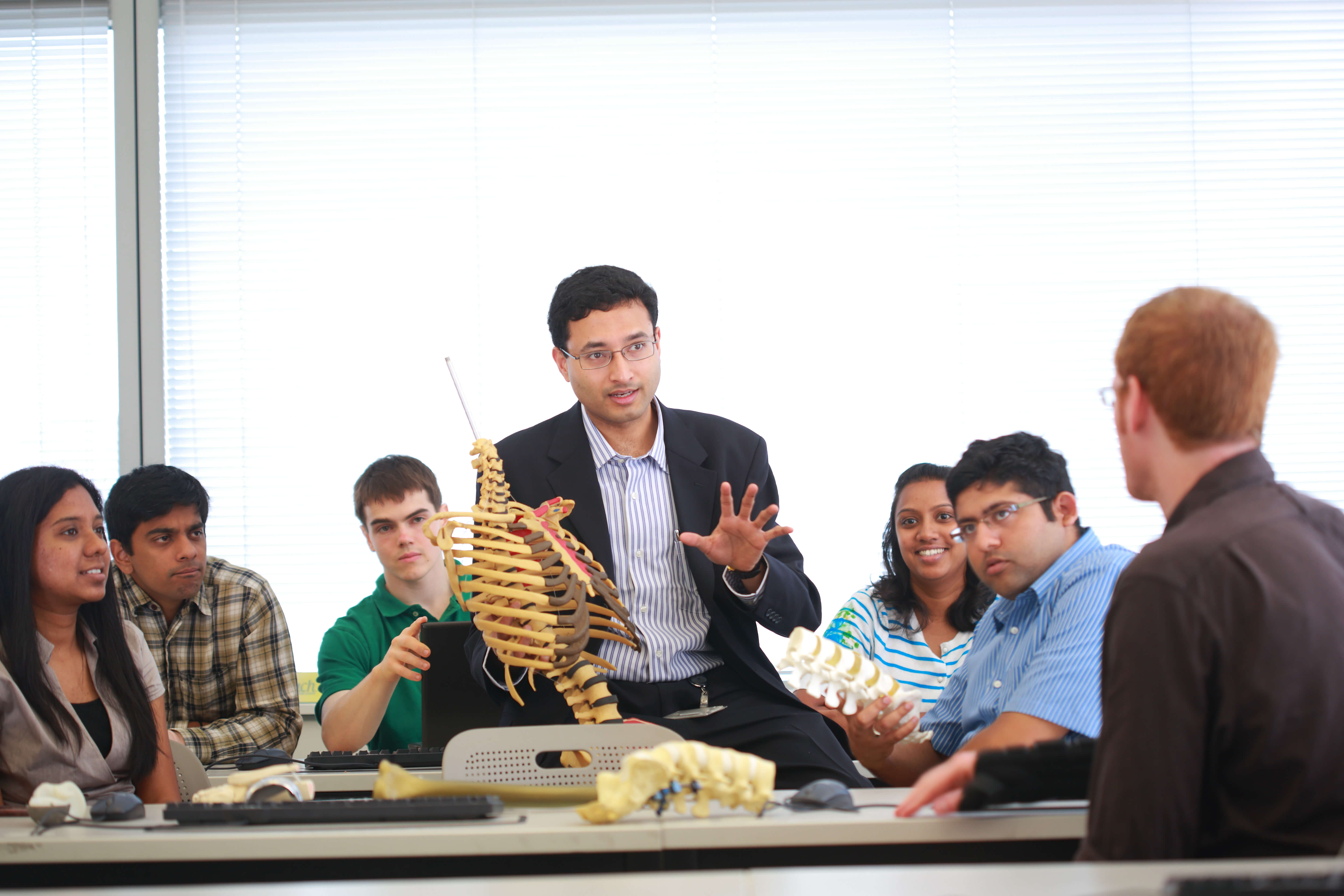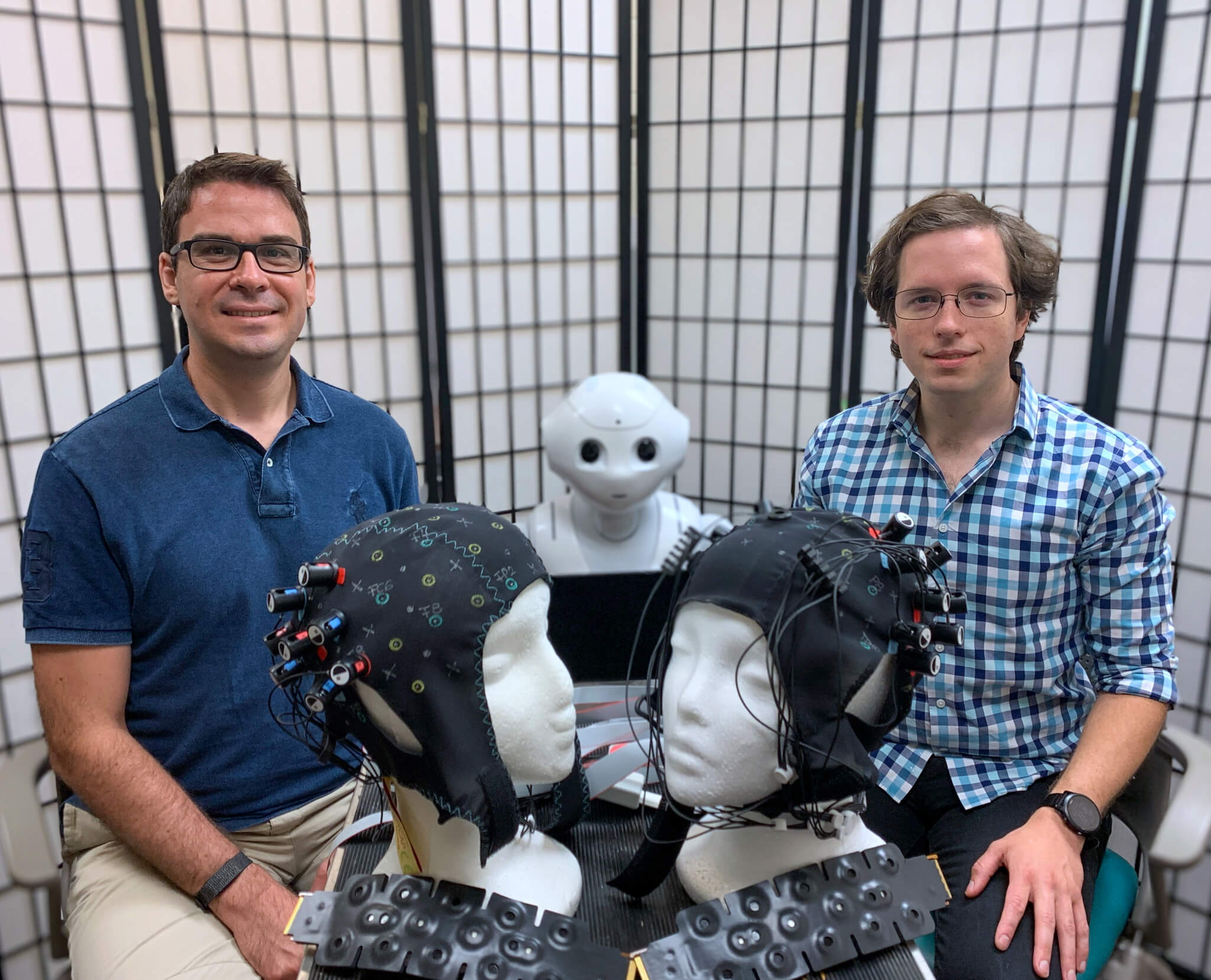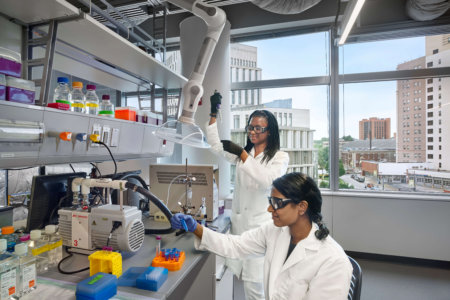Jessica Nabitovsky could not find a job she wanted. During her last year as an undergraduate biomedical engineering student, she saw that the jobs that she was applying to and the jobs that she really wanted didn’t align. “I wanted to not only know how different products were being developed but also why they were being developed as well,” she says.
“It was then that I decided that a background knowledge in business was missing and that I would get my master’s to fill that void.” The Integrated Biomedical Engineering and Business (IBEB) Master of Science (MS) Degree combined her passion for medicine, with the problem solving and thrill of innovation and technology.
Indeed, this programme – offered by Drexel University’s School of Biomedical Engineering, Science and Health Systems (BIOMED) in collaboration with the LeBow College of Business and the Close School of Entrepreneurship – is best described as a tech-savvy alternative to the traditional MBA. Besides biomedical engineering, students take up business core classes like management, leadership, economics, communications and marketing.

The Integrated Biomedical Engineering and Business (IBEB) Master of Science (MS) Degree prepares engineering graduates to become future industry leaders. Source: Drexel University, School of Biomedical Engineering
For Harshita Shah, who has always been attracted to medical device technology development, pursuing this programme at Drexel BIOMED gave her an opportunity to learn about the various aspects of the healthcare industry. Receiving the Coulter-Drexel Translational Research Programme Fellowship – offered in only 15 universities across the US – was the icing on the cake.
“It is a combination of engineering, research and business that fascinated me the most about the fellowship. Since the programme aims to transfer promising technologies developed at Drexel into clinical practice, I can put my theoretical knowledge to practical analysis,” Shah says.
Similarly, Nabitovsky feels that the Coulter Fellowship has afforded her a chance to explore how research teams get funding, which she could not do previously: “Within only a year, the material that I absorbed alongside the team conducting market research was equivalent, if not more, than the material I learned in the classroom.”

Drexel University School of Biomedical Engineering, Science and Health Systems offers a flexible master’s programme for those who want to learn about both biomedical engineering and business together. Source: Drexel University, School of Biomedical Engineering
Drexel’s graduate Coulter Fellows can work up to 15 hours weekly with research teams and learn about the latest biomedical technologies. They get practical experience of the commercialisation process as they bring an invention from their university laboratories to the real world as well.
Thanks to the Coulter Fellowship, Shah has become more confident, gained collaboration skills, and could manage time better. Nabitovsky even landed her current position with Accenture because of the experience and insight she gained from her programme.
“Throughout school, I had been so focused on the research and development of different techniques and technologies, that I had never thought about the market research or funding aspects. Coulter taught me to look at the projects from both the investor’s and customer’s points of view rather than just the researcher’s,” Nabitovsky adds.

iBE – a lifesaving breast exam detection tool — cofounders Mihir Shah (L) and Bhaumik Sanghvi (R). Source: Drexel University, School of Biomedical Engineering
In addition to merit-based fellowships most students in the IBEB program pursue a graduate co-op or internship for up to six months at Philadelphia’s biomedical hub, home to many start-ups, newly formed biotechs and established large pharma companies. On top of developing transferable skills needed to become managers and technology entrepreneurs, students receive career guidance from their corporate mentors.
At the same time, Drexel BIOMED is well-known for its translational research which catalyses the creation of new or improved health devices, drugs or diagnostic interventions. With better technical expertise, proper funding and less organisational barriers within such research, more life-saving innovations can be designed to help more people achieve better health.
Since translational research encompasses medicine, engineering, entrepreneurship and the sciences, IBEB students are in an excellent position to kickstart these inventions. Drexel BIOMED’s valuable partnerships with regional and global commercialisation communities can then help design and market these solutions.
One successful collaborative product is the Intelligent BreastExam (iBE). Drexel BIOMED Professor Wan Y. Shih’s early breast cancer diagnosis inspired her to make a radiation-free, handheld device but because it was a prototype with limited clinical testing, commercial development and distribution were required to market this.
Enter Mihir Shah’s UE LifeSciences Inc. Coincidentally located a few blocks away from Shih’s lab, Shah, a former Drexel electrical engineering graduate – whose mother in law’s breast cancer was detected early as well – licensed and redesigned the prototype into the wireless battery-operated iBE that can complete accurate, non-invasive breast exams in just five minutes.
If you have always wanted to be involved in research that can save lives, consider Drexel BIOMED. The IBEB can be completed within one and half to two years, either full or part-time, saving substantial time and money. For more information, click here.
Follow Drexel University School of Biomedical Engineering, Science and Health Systems on Facebook, LinkedIn, YouTube, Twitter and Instagram











